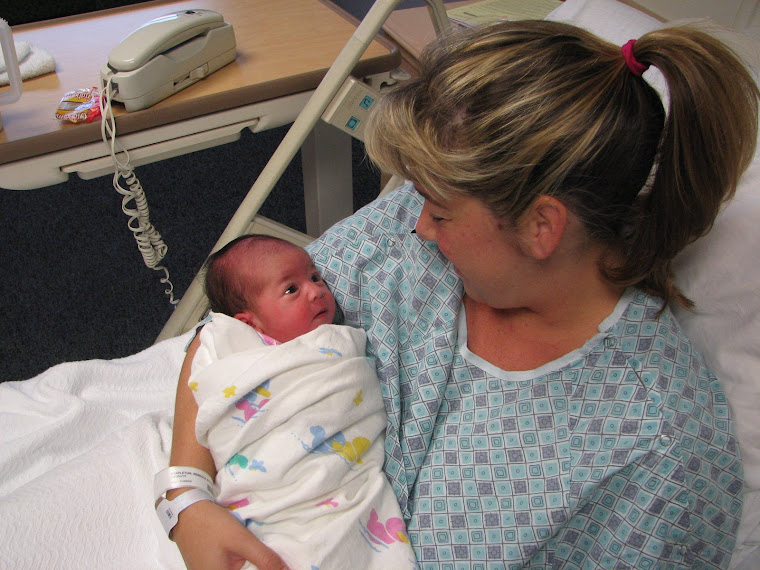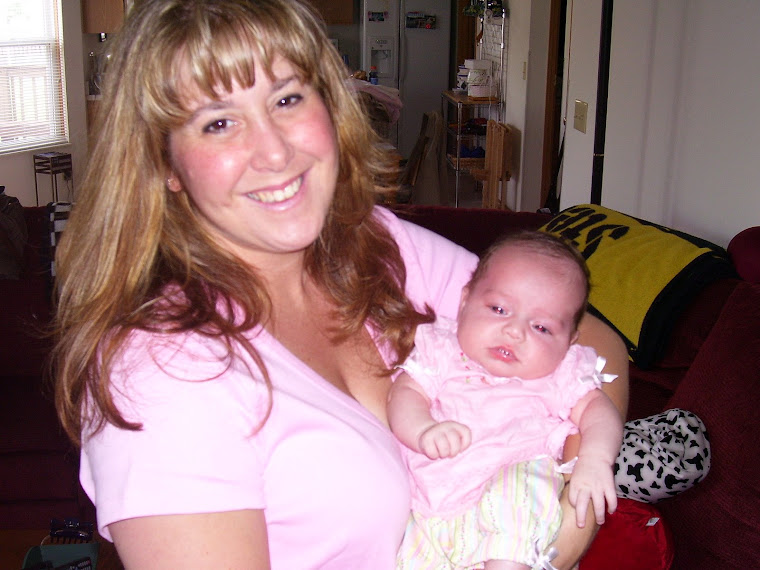When Linda Layne started spotting 13 weeks into her first pregnancy, she really didn't know what to make of it. She was a healthy 30-year-old with no family history of miscarriage. She was considered low risk by the medical profession and therefore qualified for a midwife program at her local hospital.
As a result, she was completely unprepared for the loss she was about to experience.
Her midwife told her the spotting could mean nothing and to call if it got worse.
"I bled all night," she recalls. "I had horrible cramps. Finally in the morning, I called and they [the midwives] said to go to the emergency room. And they didn't go with me."
Layne's voice still rings with outrage about the lack of support the midwives offered in her time of great need.
If something had gone wrong during labour, they would have gone with her to the hospital, but since this was an early miscarriage, they just left her on her own.
"It was a horrible experience in so many different ways," she says.
Layne says her story is no different from that of millions of other women. Pregnancy loss is minimized in western society, she says -- kept secret, considered shameful, a failure of womanhood.
But it happens in 15 to 20 per cent of all pregnancies -- 50 per cent if you count right from the moment of conception. And it is devastating to many of the women who experience it, especially those who aren't mentally or physically prepared for it.
Layne subsequently experienced four more miscarriages before she adopted an infant boy, who is now 15, and gave birth to a second son prematurely at 30 weeks, who is now 13. She lost two more pregnancies after that.
A feminist anthropologist and professor at Rensselaer Polytechnic Institute in New York state, Layne spent the last 20 years looking at how pregnancy loss is handled in western society. She says feminists have dropped the ball when it comes of this common female experience.
In 2003, she published a book titled Motherhood Lost, a feminist account of pregnancy loss in America. Now she is marketing a similarly titled television series in which she interviews others on the topic and challenges doctors to better educate their patients about possible pregnancy difficulties.
Since pregnancy loss affects one in five pregnancies, she says women need to take control of it just as they have the birth experience.
"Part of what I am advocating is that it is important for people to know about pregnancy loss before it happens," she said during a recent interview in Vancouver, where she was attending a conference. "What happens is that people start to have a loss and then their caregivers tell them about it and they are already in the throes of a crisis. It's not the moment to be giving people information."
Over the last 20 years, women have reclaimed control of their babies' births -- for example, insisting on having spouses, advocates and anybody they want with them during the birth, demanding home-like birth rooms and using doulas or midwives. Women have also worked from the theory that knowledge is power and thus we see store shelves laden with pregnancy, birth and child-rearing books.
"But there is no equivalent for pregnancy loss. And it's hard," says Layne, adding that our society treats miscarriage with breathtaking insensitivity.
"Grief for a dead loved one may be both inevitable and necessary, but the additional hurt that bereaved parents feel when their losses are dismissed and diminished by others is needless and cruel."
For example, women who miscarry often find themselves awaiting surgery on a hospital ward with women giving birth. Called a D&C, or dilation and curettage, the surgery scrapes the uterus clean of fetal tissue.
"It's grossly insensitive," agrees Dr. Tim Rowe, head of the University of B.C.'s reproductive endocrinology and infertility division. "Women get a pretty raw deal. There is not a whole lot of sensitivity out there. But the health system is shrinking and everyone is thrown in together. It's a fact of life."
Layne wants to replace the hospital D&C with "home pregnancy loss," where the fetal tissue comes out on its own. Currently, most women who lose a pregnancy between the eighth and 12th week go to hospital, get a general anesthetic and a D&C.
Rowe says this is unnecessary unless there is excessive pain, bleeding or maternal distress. "In most cases, the best way is hands off, to wait and let nature take its course."
But most doctors prefer to perform a D&C to ensure the woman will not suffer a potentially dangerous uterine infection. However, the rising costs of health care are swinging the pendulum toward a more hands-off approach because, Rowe points out, it's cheaper to avoid surgery.
Layne also advocates for better information about what to expect physically during a miscarriage. Most women are simply told to expect a heavy period.
"It's not at all like a heavy period," says Layne. "That's another way of minimizing what's happening, both physically and emotionally."
Layne tested out her ideas on the obstetricians and midwives she knows and says they were horrified.
"They came up with all these rationalizations for why women should not be told about this in advance. 'Women don't want to hear, women aren't ready to hear, women are already overwhelmed. There is too much information.'
"Its so paternalistic," she says. "To withhold information from women about their bodies for those kind of reasons is pretty astounding in this day and age."
Rowe says Layne may have some valid points, but he says women react differently to pregnancy loss. "Some women find this a terrible ordeal and some don't turn a hair."
Layne suggests the trauma of pregnancy loss may be reduced by rituals centred on the woman, rather than the lost child.
Layne likes one ritual some Jewish women adapted from one for birth in which the woman who miscarries wears red threads on her wrist until her period arrives. At that point, a soothing bath is prepared for her by her female friends. A flower garland is prepared, oils added to the bath, and once she is soaking, the red threads are cut.
"It was social acknowledgement that something of significance happened, social support offered, solidarity."
That is a whole lot better than keeping pregnancies secret for the first trimester, as most women are urged to do, because it is assumed that if they miscarry, they will want that to be secret, says Layne.
THE VANCOVER SUN 2006
Subscribe to:
Post Comments (Atom)








No comments:
Post a Comment